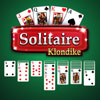Village News
The Epp Spinning Chair
For a limited time, the confirmed oldest known piece of Russian Mennonite furniture in North America is now on display at the Mennonite Heritage Village, known as the “Epp Spinning Chair”.
The Epp Spinning Chair was carved out of solid oak in 1766 by a Mennonite (surname Epp) in the Vistula Delta, now Poland.
It features as an exceptional example of the earliest authentic Mennonite furniture in the book Mennonite Furniture: A Migrant Tradition (1766-1910) by Reinhild Kauenhoven and John M. Janzen. The brilliant carvings in this chair portray “the fall”, showing Adam and Eve with horses, birds, and flowers, with the Tree of Knowledge in the center. The snake is coiled around a branch while Eve reaches up to an apple. The moment of original sin is represented as a reminder of God’s grace. The large flowers on either side of Adam and Eve are carnations, symbols for love, reinforced by the pair of doves.
The Epp spinning chair shows how Vistula Delta Mennonite objects conveyed basic beliefs and culture, their faith, language, and values, through use of highly symbolic and narrative imagery. In this case, Biblical imagery combined with symbols of love suggests that this chair was intended as a wedding present.
Family Gathering
The chair is accompanied in the main entranceway by one other artifact – a model of a Soviet combine. The combine that this model is based upon was engineered by Peter Dyck and Gerhard Hamm in 1931 in the Soviet Union. They and the workers of the Factory Kummunar were awarded the Order of Lenin for their design and production. The model combine was built in 2008 by Abe D. Friesen.
At first it seems an odd pairing, but the connection is family. The descendants of the Epp fellow who carved this extraordinary chair and decided to host their family gathering here at MHV also has family connections to the engineers of the combine. The group of some thirty people enjoyed lunch at our Livery Barn Restaurant, and a guided tour of the village, in addition to younger generations seeing the chair for the first time.
The Mennonite Heritage Village offers the perfect setting for a family gathering such as this, with cultural tours, a multi-purpose room available for rent, and a great on-site restaurant like the Livery Barn, families can enjoy a day at the village while younger generations have the opportunity to learn about their family histories, surrounded by material artifacts and buildings to explore.
The spinning chair is on loan to MHV until September when it will return to its permanent home in the galleries of the Kauffman Museum in Kansas.




